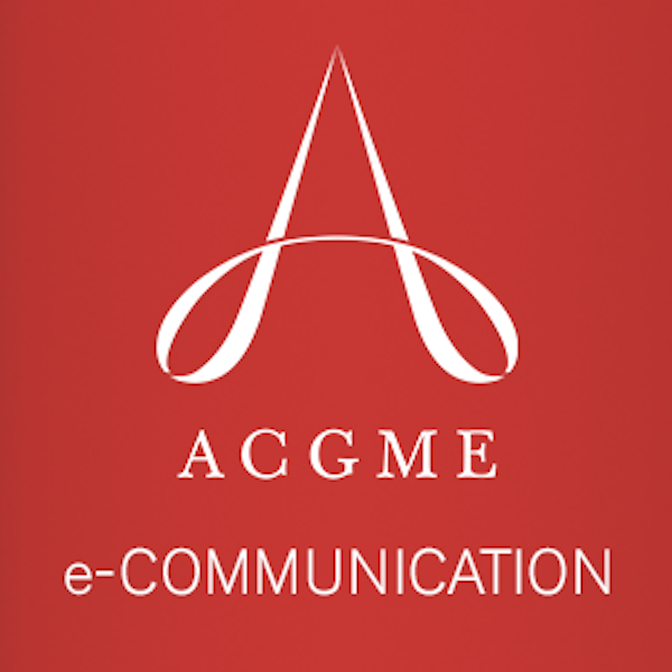Accreditation
Updated Medical Student Away Rotation Recommendations Through the 2021-2022 Academic Year
The Coalition for Physician Accountability has released updated recommendations regarding medical students completing away rotations in the 2020-2021 academic year during the COVID-19 pandemic.
January 25, 2021
This week's e-Communication includes information on the Resident/Fellow and Faculty Surveys, updated Milestones that go into effect July 1, 2021, Review and Comment for program requirements, the Annual Educational Conference, and more.
January 19, 2021
This week's e-Communication includes information on the Resident/Fellow and Faculty Surveys, updated Milestones that go into effect July 1, 2021, Review and Comment for program requirements, the Annual Educational Conference, and more.
January 11, 2021
This week's e-Communication includes information on the Resident/Fellow and Faculty Surveys, Review and Comment for program requirements, the Annual Educational Conference, and more.

Updated: Supplemental Guidance Regarding the COVID-19 Pandemic, ACGME Accreditation, and Sponsoring Institution Emergency Categorization
The ACGME is issuing supplemental guidance regarding how a Sponsoring Institution’s days in Emergency Category status will be counted; protection of resident, fellow, and faculty member health and safety; and assessment of residents and fellows.
ACGME e-Communication - December 21, 2020
This week's e-Communication includes a Frequently Asked Question about accreditation and recognition site visits during the COVID-19 pandemic, Review and Comment for program requirements, and more.

ACGME e-Communication - December 14, 2020
This week's e-Communication includes information on the ACGME Annual Educational Conference speakers, the Clinical Learning Environment Review (CLER) Program's webcasts about upcoming COVID-19 site visits, a Call for Papers from the Journal of Graduate Medical Education, and more.

ACGME e-Communication - December 7, 2020
This week's e-Communication includes information on the ACGME Annual Educational Conference speakers, the Clinical Learning Environment Review (CLER) Program's webcasts about upcoming COVID-19 site visits, Review and Comment, and more.

ACGME e-Communication - November 23, 2020
This week's e-Communication includes information on the ACGME's latest guidance regarding accreditation, Sponsoring Institution Emergency Category status, and COVID-10; the 2021 Annual Educational Conference; Review and Comment, participation opportunities in the Milestones 2.0 program, and more.

ACGME e-Communication - November 16, 2020
This week's e-Communication includes information on the ACGME's position on the Annual Educational Conference, a webinar on assessing residents and fellows, Review and Comment, participation opportunities in the Milestones 2.0 program, and more.


